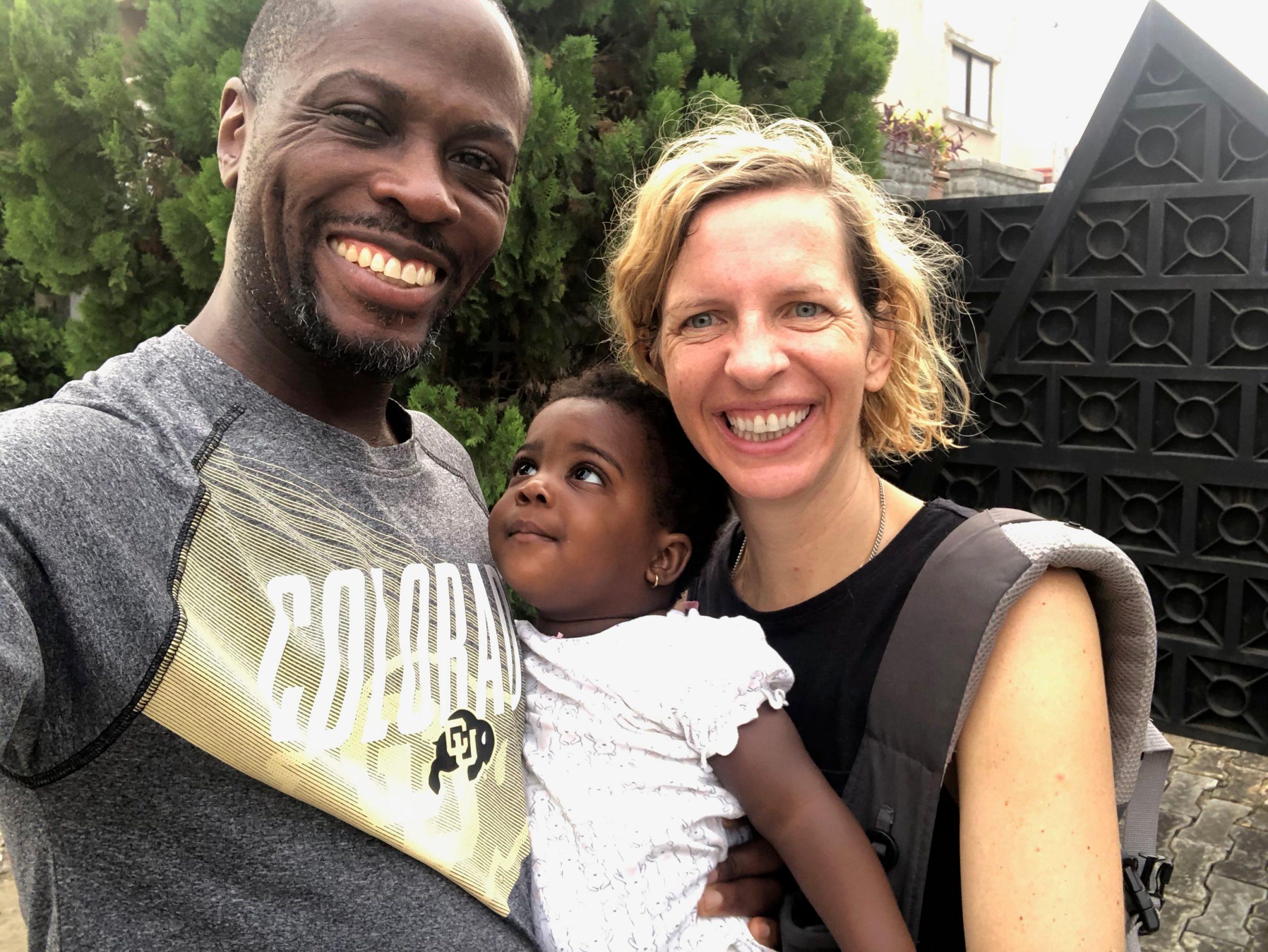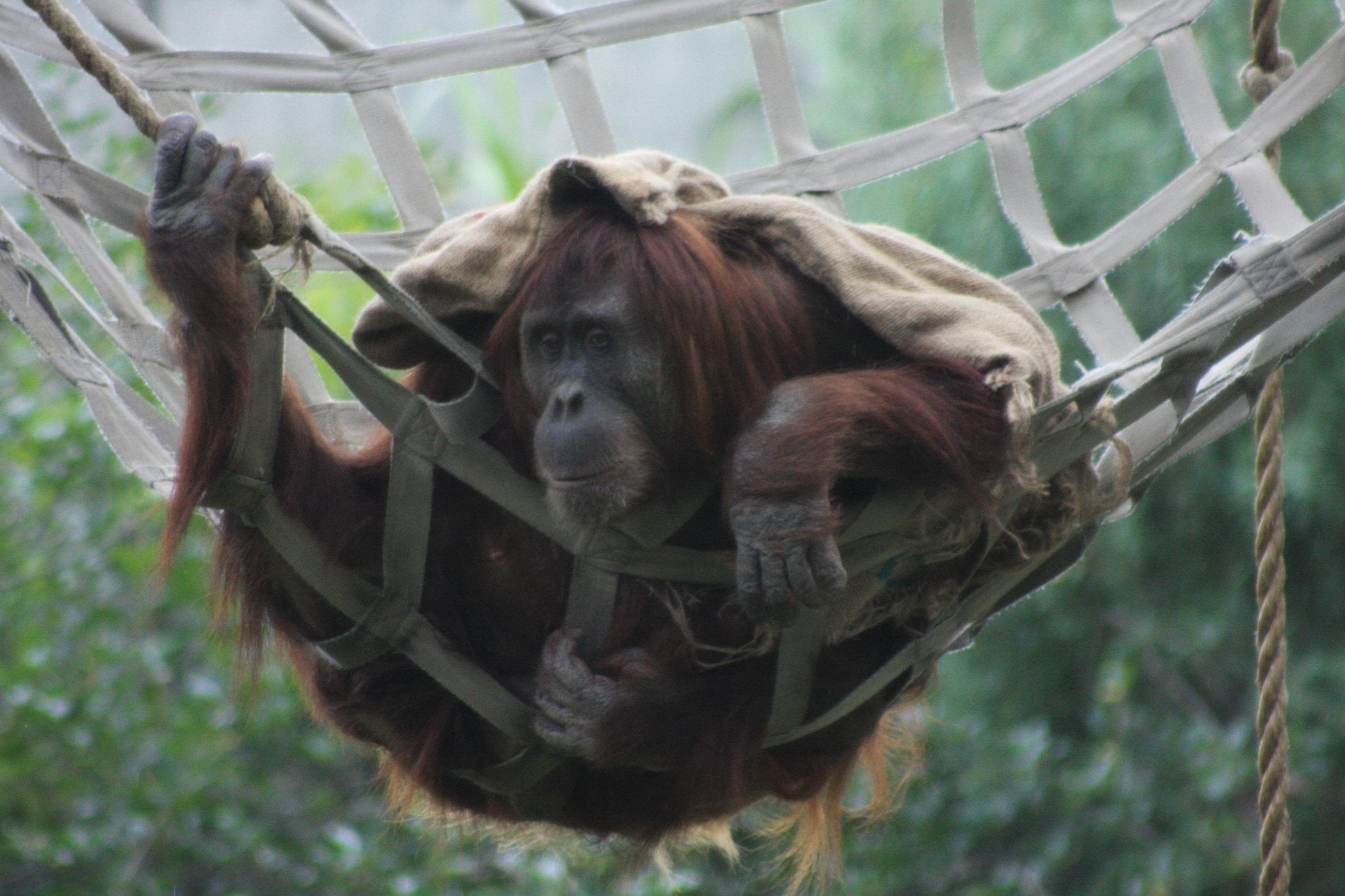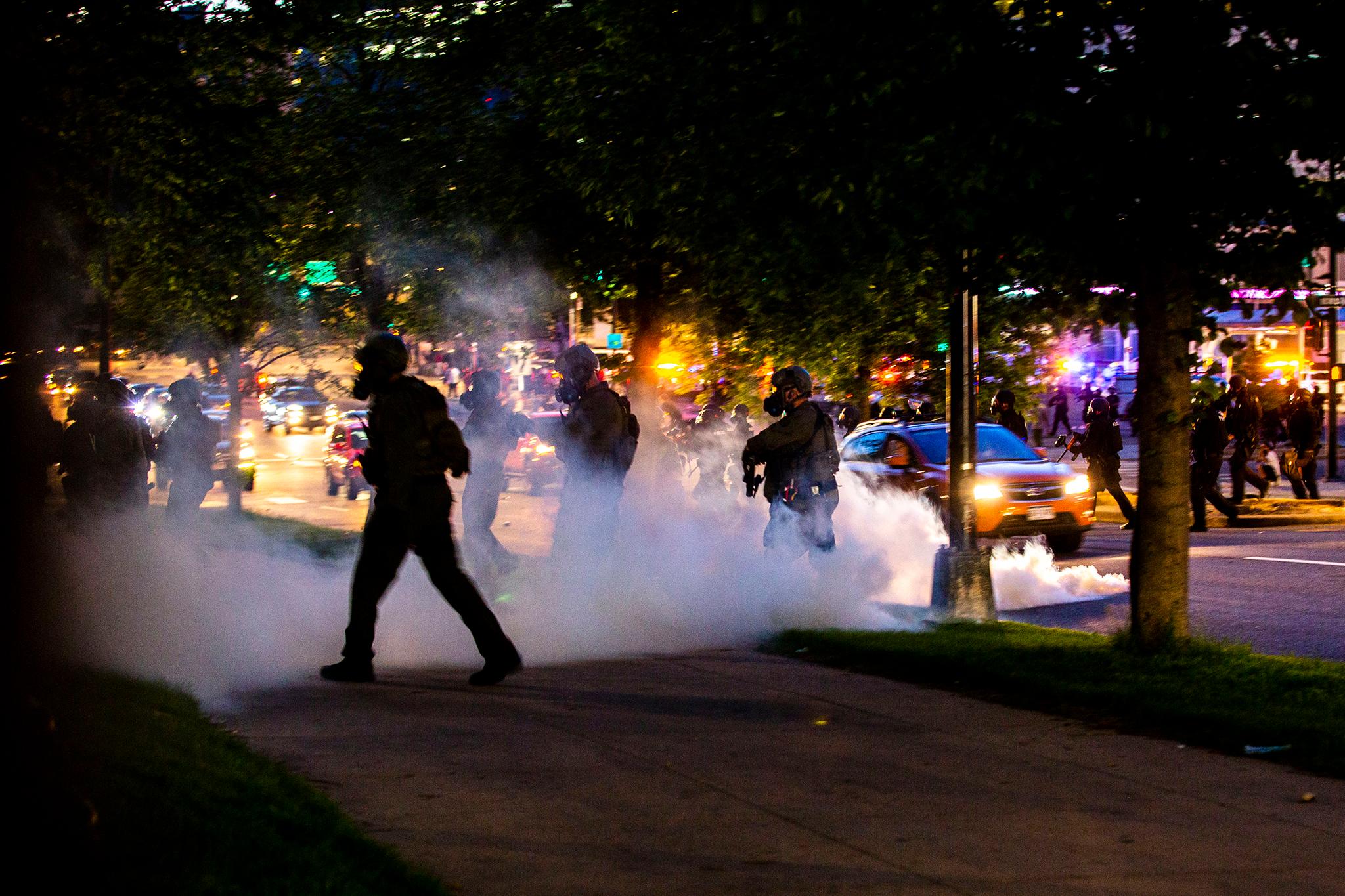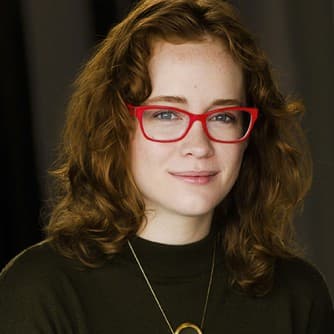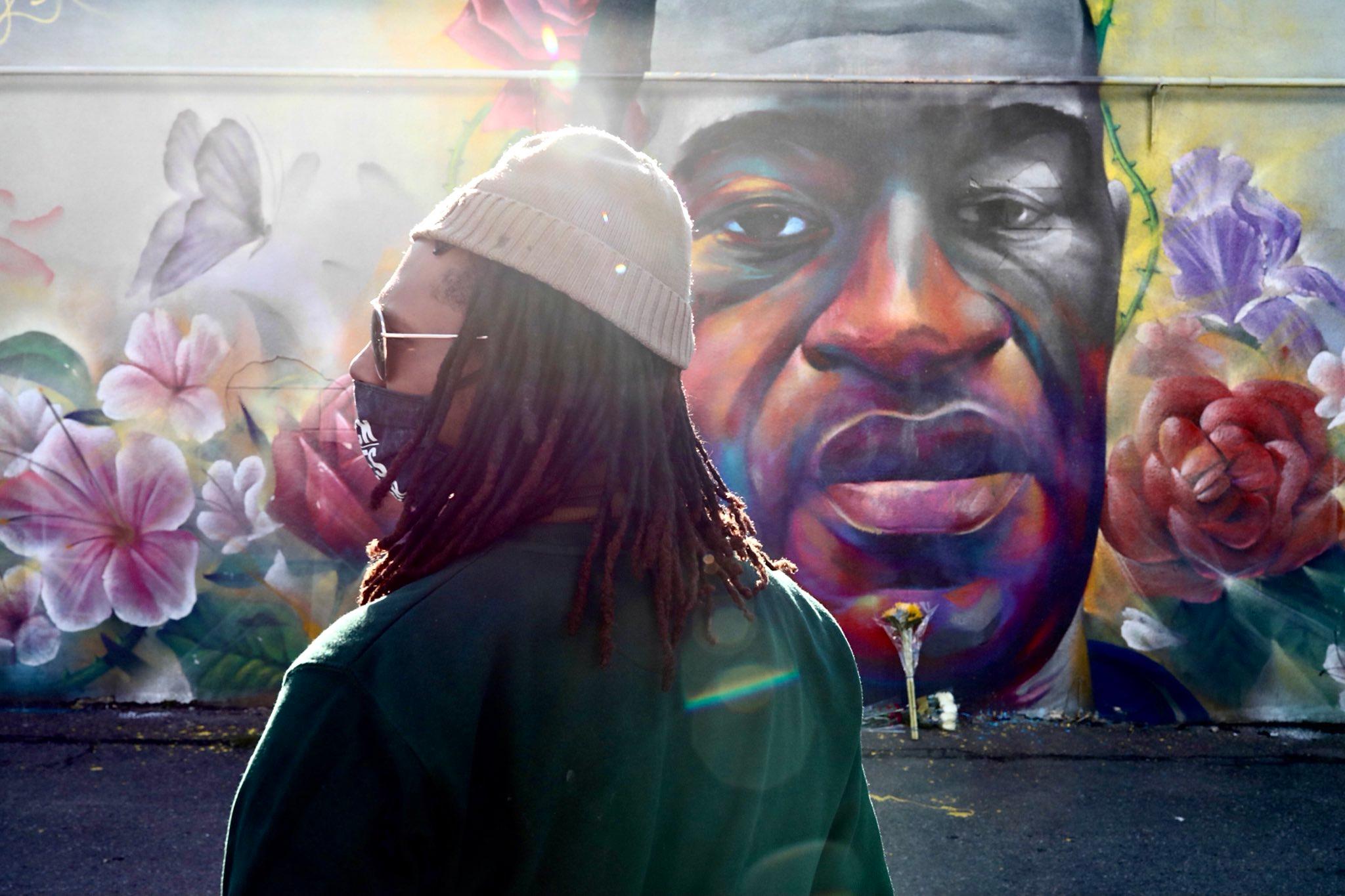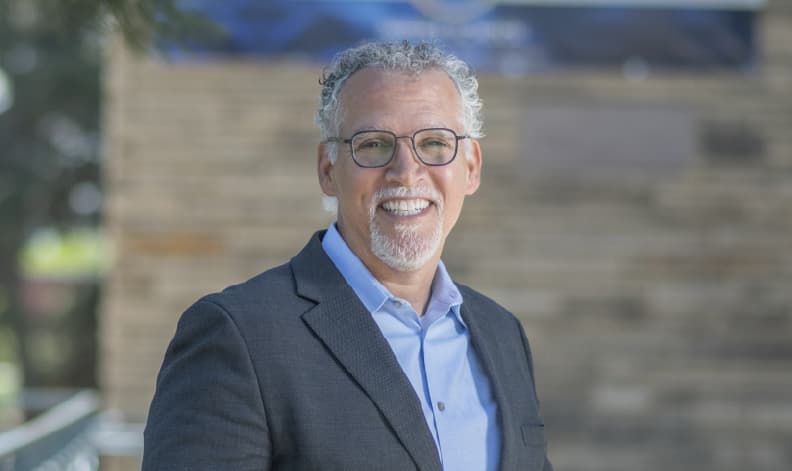In a message issued Monday to Americans in Nigeria, the U.S. government said an evacuation flight could leave this week so that its citizens can be home during the coronavirus outbreak.
The embassy said it did not yet have details on when the plane would leave but said "after this flight, there are no other flights currently scheduled."
Denverites Adebambo Alli and his wife, Robin Gallite, have confirmed seats. But the couple -- after waiting months in Lagos, Nigeria's largest city, to bring their newly adopted daughter, Adenike-Rae Alli, home -- don't know when their 16-month-old will get the visa she needs to fly.
Alli and Gallite been caught up in what the head of the Boulder-based adoption agency they used says is a rethinking of U.S. policy on international adoptions. The wait was made even more stressful by the travel ban that Washington imposed on Nigerians in February. And then came the pandemic.
Gallite said embassy officials have made clear that she and her husband, who both have U.S. passports, can board an evacuation flight, but that their daughter cannot. The State Department did not respond to a request for comment from Denverite.
"I can't understand how they would think anyone could and would leave their child," Gallite said.
Adenike-Rae has officially been theirs since a Nigerian judge approved the adoption in October. She's felt like their daughter since shortly after a call last July from the adoption agency with whom they'd been working since they started their adoption journey in 2018.
The call was to let Alli and Gallite know that they had been matched with the little girl who was a newborn when she was abandoned on a door step in Cross River state in southeast Nigeria. They were sent two photographs and an essay describing the child, who had been taken to an orphanage.
"Once we saw the photos, we fell in love almost immediately," Alli said.
After learning of the match, he and Gallite made a quick trip to Ohio, where her family is from. They dropped off their dog to be cared for while they were away, picked up some baby clothes Gallite's mother and sister had collected, and headed to Nigeria.
It was Gallite's second trip to Nigeria. Her husband was born in the United States to a Nigerian family and had spent some of his boyhood in the West African country, where his father lives. The couple left in August, prepared for a long stay with Alli's family in Lagos. They had been told to expect Nigerian officials to ask them to spend months bonding with the little girl before the adoption could be finalized.
They arrived in Lagos on Aug. 7. After a few days with family, they headed to Cross River, first to be interviewed by representatives of the government and the orphanage.
"It felt like an SCFD panel," joked Gallite, referring to metro Denver's Scientific and Cultural Facilities District, which distributes funds to arts organizations. Gallite is deputy director of Denver's RedLine Contemporary Art Center in Five Points. Her husband works in the oil and gas industry.
After the interview, they were taken to the orphanage to meet Adenike-Rae, whom they call Nike. Gallite had a dress for her but had forgotten socks.
"They went and got little socks and put socks on her," Gallite said. "We just kept looking at her. She was so cute."
Orphanage staff said a prayer and took photographs.
"They sang. We all kind of stood in a circle. I didn't know how it was going to be, but for both of us, it was magical."
Nike was calm amid the ceremony.
"She was quite comfortable and happy and it felt like she had been taken care of and loved," Gallite said. "And of course we were grateful for that."
They were allowed to take Nike with them, at first back to their hotel in Cross River, and then across the country to Lagos.
"We just kind of became parents instantly," Gallite said.

They briefly returned to Cross River from Lagos in mid-October to appear before a judge who made their family legal.
It was only after the adoption was finalized that they could take the next step, applying for a U.S. visa for Nike. They did so in November.
"My husband's an eternal optimist," Gallite said. "So he was like, 'We'll definitely be home by Christmas."
Genevieve Jacobi, executive director of Boulder-based A Family in Bloom Adoption, said the Alli-Gallite family is among eight from around the United States that have worked with her agency that are stranded in Nigeria. Jacobi said it is typical of the U.S. consulate in Lagos to spend lengthy periods reviewing adoptions, although she is unsure why. She thinks Nigerian orphanages, adoption agencies and government child welfare officials are trustworthy. In addition, she said, she is careful about the families she sends to Nigeria.
Gallite recalled the interviews, financial reviews and background checks A Family in Bloom required.
"It's kind of a full examination of all the aspects of your life," Gallite said.
Beyond consular officials in Lagos, Jacobi said she has sensed in recent years that the State Department has become skeptical of international adoptions, taking the position that children should be cared for in the countries where they are born.
"I don't understand the suspicions and negativity," said Jacobi, who believes international adoptions can serve children in need.
Since 2006, an entity known as the Council on Accreditation had accredited and approved U.S. adoption service providers as part of the process of approving international adoptions. In 2018, the council stopped its work, leaving accreditation to the Intercountry Adoption Accreditation and Maintenance Entity, Inc., which had been brought in 2017. In a blog posted last month on the web site of the advocacy group the National Council for Adoption, Jayne Schmidt, who had developed and managed international adoption programs and standards for the Council on Accreditation, said that since the Council on Accreditation stopped its adoption work, adoption service providers have reported a crackdown.
"While some have suggested this increased oversight is necessary, there are no comprehensive assessments of abuses available to demonstrate that need," Schmidt said.
Schmidt wrote that amid the crackdown, the number of accredited adoption agencies has declined as they voluntarily or involuntarily lose their accreditation, and that the number of children adopted internationally has declined from a peak of nearly 23,000 in 2004 to just over 4,000 in 2018.
Alli said he understood the need for careful investigations to ensure children are not being stolen and trafficked. But he thought his family's case was straightforward.
"The kid was abandoned and taken to an orphanage and had been there for nine months before we came along," he said. "And there's documentation to prove it."
"A week turns into a month and a month turns into a quarter of a year and we're still here," Alli said.
Along the way, they moved from Alli's sister's home to a short-term rental in Lagos.
"The good thing about it is we've had this time, all three of us, to get to know one another and to bond and to operate as a family," Alli said.
Nike could be heard giggling in the background as her parents spoke via an internet app with Denverite. Gallite said her little girl continued to show the equanimity she'd noticed the day she met her at the orphanage.
"She's just happy as ever," Gallite said. "This is her life. Her parents are with her 24-7. We never leave each others' sides."

They connect via video conference every day with friends and relatives in the United States, including Alli's mother, who lives in Denver and has been to Nigeria to meet her granddaughter. Gallite's mother and step father have not been able to make the trip.
The wait has had some especially low moments. In February, the Trump administration included Nigeria among six countries targeted by a ban first enacted in 2017 to restrict travel from Muslim-majority countries. The administration says the ban is necessary to ensure that countries satisfy security requirements for travel into the United States.
"For 48 hours, we thought we'd have to live in Nigeria until the travel ban was lifted," Gallite said.
That concern was lifted when they were assured adoption cases were an exception. But Nike's visa wasn't coming through, and they were getting little information from consular officials.
"And then comes coronavirus, six weeks later," Alli said.
Work at the consular office slowed. Still, about a month ago, the Alli-Gallittes heard from the Nigerian adoption agency that worked with A Family in Bloom that embassy officials had traveled to Cross River and visited the orphanage and met with government officials. Optimist Alli was sure they'd be home soon.
They are under stay-at-home orders in Lagos. Nigeria has shut down international air travel, a move many countries have taken in response to the coronavirus outbreak, making special evacuation flights necessary. In a statement late last month, the National Council for Adoption said that "many U.S. families in the midst of inter-country adoptions are currently stranded overseas in vulnerable situations and in need of immediate assistance as a result of international travel restrictions from the current COVID-19 pandemic."
The council called on the State Department to arrange for what is known as humanitarian parole to allow children such as Nike to travel without a visa and then have their cases completed in the United States.
Ryan Hanlon, vice president of education, research, and constituent services for the National Council for Adoption, said in a statement accompanying the call for humanitarian parole that "U.S. citizens who have adopted children internationally cannot be asked to abandon their children while waiting for a visa and return to the United States. Instead, we must be willing to respond to these extreme, unprecedented circumstances with solutions that prioritize the safety, health, and welfare of these families and the children they have legally adopted."
The Alli-Gallites have turned to their elected officials for help.
In an email Monday, Courtney Gidner, an aide to U.S. Sen. Michael Bennet, said her office has been in touch with Gallite "throughout the process and have been in touch with the U.S. Consulate in Lagos on her behalf to process the adoption petition. We followed up with the consulate again as recently as last week, but have not received another update as of yet. Our understanding is that the pandemic has created some delay ... on top of the fact that this is a complicated case."
In an email Monday, Gallite said the family had received a call a day earlier about the evacuation flight. The consular officer who called did not have information about Nike's case and promised to check with a supervisor and call back.
"We still haven't heard," Gallite wrote.
Correction: This article was updated to correct name to Robin Gallite, as is her preference.

